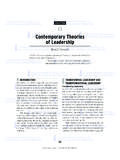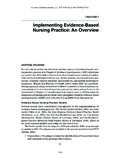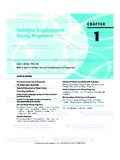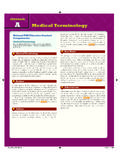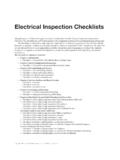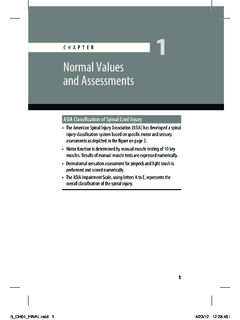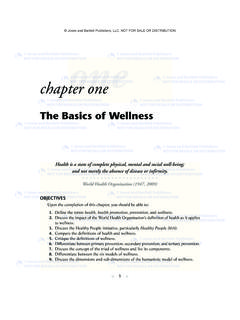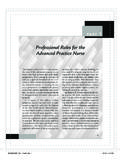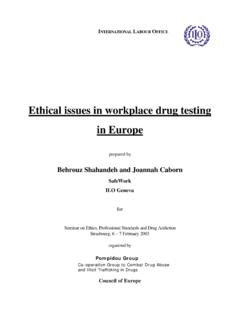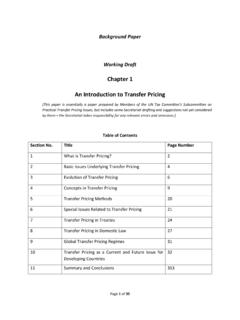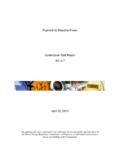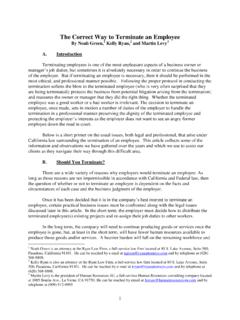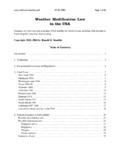Transcription of Ethics Surrounding Interviewing - Jones & Bartlett …
1 Ethics SurroundingInterviewing2 CHAPTER19 Upon completion of this chapter, students should be able to1. Understand the ethical issues and their ethical responsibility surroundinginterviewing2. Be able to develop their individual ethical standards 3. Understand the potential power of their role as interviewers and thepotential consequences of interviewsIntroductionA skeleton shadow of a woman sat across from the interviewer. She would notmake eye contact, but showed no emotions. Her infant was dead, allegedlyfrom Sudden Infant Death Syndrome, but there were indications that the childmay have died from neglect and abuse. The interviewer knew that it would betempting to treat this woman with scorn and ridicule. Any person who wouldput his or her drug habit before an infant s needs did not have any self-respectand deserved to be treated with behavior is based on knowing the difference between what is legaland what is moral.
2 The interviewer is solely responsible for the interview methodsemployed; his or her conscience acts as the of the alleged offense or how unsavory the personality of theinterviewee, the interviewer must adhere to ethical standards. The inter-viewer controls his or her behavior; it is not controlled by the interviewee,the criminal justice system, or the immediate chapter provides examples of ethical and unethical behavior, butthere is no ironclad rule that makes the decision simple. The interviewershould view his or her behavior as though it were to be published on the frontpage of a Sunday edition of the local newspaper. How proud would theinterviewer be if the interviewer s supervisor, parents, and closest friendsread in the paper about the methods he or she used during Interviewing ? Ifthe interviewer begins to rationalize or justify techniques used, then morethan likely the techniques are unethical.
3 We rationalize to make 3/2/10 6:06 PM Page 19 Jones and Bartlett Publishers, LLC. NOT FOR SALE OR DISTRIBUTION20 Chapter 2 Ethics Surrounding Interviewingfeel better about what we did. If we have to rationalize, then it stands to rea-son that what we did might be such as, the end justifies the means, should be examinedclosely. Interviewing is a prime area in which the means are as important asthe end. If unethical means are used, then the end cannot be trusted to providevalid information. Information must be provided freely and voluntarily withoutcompelling influence (Miranda v Arizona, 1966).Following the due-process model, interviewers operate under the princi-ples that the process of the law is more important than a conviction or catch-ing a client. Under the due-process model, it is recognized that the coerciveauthority of the criminal justice system sometimes abuses, and must be bal-anced with, an individual s rights (Peak, 2009).
4 Even when students are notinterested in becoming police officers, they should be well-versed in Constitutional amendments and related case law. Individual rightsshould be protected by all criminal justice of EthicsActivity: The instructor facilitates a discussion with the students aboutthe fluidity of Ethics depending on their criminal justice role and thepurpose of their interviews. Purpose: To facilitate the understanding of the many different faces ofethical What would be the difference between a police officer interviewinga suspect in which the consequences are loss of freedom and a pro-fessional interested in treating a court-deferred substance abuser?Does duty play a different role for the officer than for the treatmentprofessional?2. What are some of the ethical issues that a probation officer workingwith a client faces versus a juvenile court counselor working with ajuvenile?
5 EXERCISE StandardsWe described the principles of Interviewing in Chapter 1. Ethical standardsclosely follow these principles. The interviewer begins with the understandingof the worth and dignity of every human being. Openness and nonjudgmentmust be maintained throughout the interview, treating each intervieweewith fairness and impartiality irrespective of socioeconomic status, associates,race, religion, or physical appearance. On the other side of the same coin,interviews, decisions, and records should remain untainted by personal,financial, political, or any other type of improper 3/2/10 6:06 PM Page 20 Jones and Bartlett Publishers, LLC. NOT FOR SALE OR DISTRIBUTIONE thical Standards21 Interviews are built on information gathered by all possible sources. Theinterviewer strives to obtain and verify additional information by methodsand techniques that have the greatest probability of eliciting reliable andvalid facts.
6 It is becoming more evident that information obtained as a resultof coercive techniques is inherently unreliable (Sear & Williamson, 1999).There is never a justifiable reason to suppress or falsify relevant informationobtained in an interview. Interviewing is hard work and should be established on thorough prepa-ration. No excuse, including fatigue or disinterest, ethically permits takingshortcuts in an interview. The English police have moved their investigative procedures away fromthe practices of interrogating the suspect to more thorough interview-ing of victims and witnesses. The English police are trained to search for thetruth rather than to push for confessions. More thorough Interviewing ofvictims and witnesses is likely to turn up better evidence, which in turn in-creases the likelihood of gaining valid information about the suspect (Bull &Milne, 2004).
7 The English judicial system also examines closely whether ornot the police behave fairly toward vulnerable suspects such as those withspecial needs or low intelligence (Sear & Williamson, 1999). This subjectwill be discussed in greater detail later in this in many cases is a prime example of unethical rather thanillegal behavior. There are a number of court decisions in which police officershave used deception to extract a confession, although obvious deceptiveactions such as false promises that mislead a suspect and lead to confessions(Pyles v State,947 754, as cited in Klotter, Walker & Hemmens, 2005)are considered by the courts as involuntary confessions and are not admissible(State v Burdette,611 615, 2000, as cited in Klotter et al., 2005). State v Jackson(1983) provides an ethical rather than a legal question. Inthis case, the police interviewed Jackson, the suspect, multiple times.
8 Jacksonwas not in custody, but rather requested to talk to the police. The police be-lieved they had found the knife used in the murder. A knife matching the setfrom the victim s kitchen was found thrown in the bushes near the crimescene. There was no blood on the knife and no fingerprints. One of the de-tectives had an idea. He took an identical knife from the set still in thekitchen. He cut his thumb, drawing blood, and then pressed his bloodythumb to the recreated murder the next interview, Jackson again denied killing the victim. Thedetective jammed the substitute bloodied knife in front of Jackson s nose andyelled, Then how do you explain your fingerprints on the murder weapon? The detective also told Jackson that a witness had seen him run from the vic-tim s apartment. That was a lie. The witness saw a man running down thestreet, not out of the apartment, and could not identify him.
9 Jackson beganto recount what his role in the victim s murder was tried and convicted. The case went up on appellate court s decision ruled that Jackson s confession was ad-missible, despite the detective s deception. The court s decision, however, 3/2/10 6:06 PM Page 21 Jones and Bartlett Publishers, LLC. NOT FOR SALE OR DISTRIBUTION22 Chapter 2 Ethics Surrounding Interviewingincluded the reprimand .. the officers deceived and lied to the actions are not to be condoned by the courts .. (p. 21). So while the de-tectives deceptive actions were legal, their ethical behavior was is on the slippery slope toward unethical behavior. As an in-terviewer, detective, private investigator, or social worker begin to slide, itbecomes more and more difficult to define what behavior is acceptable andwhat is not. Validity of Confession EvidenceAlthough this book is restricted to Interviewing and deals with interrogationsin a limited fashion, many of the ethical issues surround pressuring individ-uals to confess to acts they may or may not have states that an innocent person would never confess to a crimethat he or she has not committed.
10 Because juries believe this folklore, con-fessions are one of the most powerful pieces of evidence that can be admit-ted into court (Gudjonsson, 1993). There is a growing body of literature,however, that has examined the vulnerabilities of people and the risk of falseconfessions. Innocent people, in fact, sometimes do confess to crimes theyhave not committed. Although the incidence of false confessions is unknown, Leo (1996) dis-covered a disturbing number of documented cases in which defendants con-fessed, later retracted the confession, were convicted at trial, and then laterexonerated by DNA or other forms of irrefutable physical evidence. Researchers for The Innocence Project also have found that roughly aquarter of all DNA exoneration cases contained full or partial confessions,apparently false (Leo, 1996). Probably one of the most famous cases was theCentral Park Jogger.

